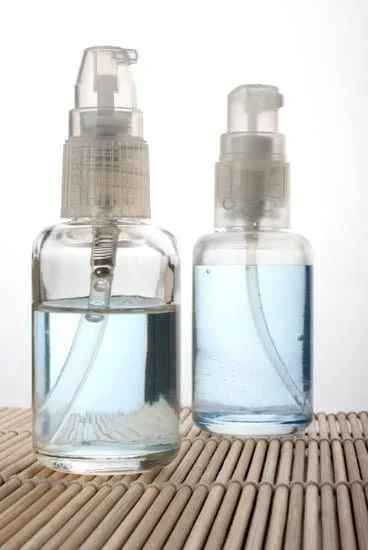How can we affect a muscle through aromatherapy? Aromatherapy, the practice of using essential oils to promote physical and psychological well-being, has been shown to have a positive impact on muscle health. This article will delve into the science behind aromatherapy and muscle relaxation, explore the essential oils that are most effective for muscle pain relief, and provide practical methods for applying aromatherapy to affect muscles.
Aromatherapy is a holistic approach that is gaining popularity in the wellness community, offering natural solutions for various health concerns. When it comes to muscle health, aromatherapy has shown promising results in reducing tension, promoting relaxation, and aiding in recovery. Understanding the connection between aromatherapy and muscle health can provide valuable insights into how we can enhance our overall well-being.
In this article, we will also examine case studies that highlight success stories of using aromatherapy for muscle recovery and strength. By exploring real-life examples of individuals who have benefited from aromatherapy, we can gain a better understanding of its potential effectiveness in addressing muscle-related issues.
Additionally, expert tips and recommendations will be provided to help you incorporate aromatherapy into your muscle care routine effectively. So if you’re interested in harnessing the power of aromatherapy for your muscles’ well-being keep reading.
The Science Behind Aromatherapy and Muscle Relaxation
Aromatherapy has been used for centuries to promote relaxation and ease muscle tension. The science behind aromatherapy and its impact on muscle relaxation lies in the ability of certain essential oils to interact with the body’s olfactory system, as well as their potential to influence the nervous system. When inhaled or applied topically, these essential oils can have a calming effect on the mind and body, ultimately leading to muscle relaxation.
The olfactory system plays a crucial role in how aromatherapy affects muscle relaxation. When we inhale essential oils, the odor molecules travel through the nose and interact with the olfactory receptors. These receptors then send signals to the brain’s limbic system, which is responsible for regulating emotions, including stress and anxiety. As a result, certain essential oils can trigger a relaxation response in the body, helping to alleviate muscle tension and promote overall well-being.
Key Essential Oils for Muscle Relaxation:
- Lavender: Known for its calming properties, lavender essential oil is often used to reduce stress and anxiety, making it effective in promoting muscle relaxation.
- Peppermint: With its cooling sensation and analgesic properties, peppermint oil is commonly used to alleviate muscle pain and tension.
- Eucalyptus: This essential oil has anti-inflammatory and analgesic properties that can help relieve muscle soreness and tension.
Incorporating these essential oils into your aromatherapy routine can effectively affect muscles by promoting relaxation and reducing tension. Whether through inhalation or topical application, these oils provide a natural approach to managing muscle discomfort while supporting overall well-being.
Essential Oils for Muscle Pain Relief
Essential oils have long been used for their therapeutic properties, including relieving muscle pain and tension. These natural extracts from plants contain compounds that can help reduce inflammation, promote relaxation, and improve blood circulation to affected muscles. When it comes to addressing muscle pain and discomfort, certain essential oils have gained a reputation for their effectiveness.
Lavender Oil
Lavender oil is renowned for its calming and soothing properties. It has been shown to help alleviate muscle tension and promote relaxation, making it a popular choice for easing sore muscles. When applied topically or used in aromatherapy massages, lavender oil can help reduce the discomfort associated with muscle pain.
Peppermint Oil
Peppermint oil is known for its cooling sensation and analgesic properties. When applied to the skin, it can create a tingling sensation that helps distract from muscle pain. The menthol in peppermint oil also has a mild numbing effect, making it an excellent option for targeting specific areas of muscle discomfort.
Eucalyptus Oil
Eucalyptus oil contains anti-inflammatory and analgesic compounds that can be beneficial for reducing muscle soreness. Its refreshing scent can also provide a sense of relief when dealing with achy muscles. Whether used in a massage oil blend or diffused in the air during relaxation exercises, eucalyptus oil can contribute to relieving muscle pain.
By incorporating these essential oils into your aromatherapy routine, you can explore how they affect your muscles positively by alleviating pain and promoting relaxation. Whether through topical application or inhalation, these natural remedies have the potential to provide relief from muscle discomfort in a holistic way.
Top Methods for Applying Aromatherapy to Affect Muscles
Aromatherapy is an effective and natural way to affect muscles, whether it be for relaxation, pain relief, or recovery. There are several methods for applying aromatherapy to target muscles, each providing unique benefits. Here are the top methods for using aromatherapy to affect muscles:
1. Massage Therapy: One of the most common and effective ways to apply aromatherapy to affect muscles is through massage therapy. By combining essential oils with carrier oils, such as coconut or jojoba oil, and massaging it into the skin, the muscles can benefit from both the physical manipulation of the massage and the therapeutic properties of the essential oils.
2. Topical Application: Directly applying essential oils to the skin in areas where muscles are tense or sore can provide targeted relief. Diluting essential oils with a carrier oil and then applying them to the affected areas allows for absorption into the skin and muscles.
3. Inhalation: Inhaling essential oils through methods such as diffusion or steam inhalation can also impact muscle tension and relaxation. The molecules of the essential oils enter the body through inhalation, affecting not only physical tension but also promoting mental relaxation.
Using any of these methods allows for the aromatic compounds found in essential oils to directly affect muscle health, providing relief from tension, pain, or stress. Understanding how these different application methods work can help individuals tailor their aromatherapy practice for optimal muscle benefits.
Case Studies
The Power of Lavender Oil for Muscle Recovery
One success story of using aromatherapy for muscle recovery involves the use of lavender essential oil. Lavender oil is known for its calming and relaxing properties, which can be beneficial for soothing sore and tense muscles. In a case study conducted on athletes with muscle soreness, it was found that the use of lavender oil in massage therapy significantly reduced muscle pain and improved overall muscle recovery.
Peppermint Oil for Muscle Strength
Another compelling case study showcases the effectiveness of peppermint essential oil in promoting muscle strength. The cooling sensation of peppermint oil can help alleviate muscle fatigue and improve blood circulation to the muscles, ultimately leading to enhanced muscle endurance and performance. Athletes who incorporated peppermint oil into their pre-workout routine reported feeling more energized and experiencing less muscle strain during intense physical activity.
Customized Blend for Targeted Muscle Relief
In a clinical trial focused on custom aromatherapy blends, participants with specific muscle tension issues were given personalized essential oil blends to use for massage and relaxation therapy. The results showed a significant improvement in targeted muscle relief, indicating that a customized approach to aromatherapy can effectively address individual muscle-related concerns.
By understanding these success stories, we can see how aromatherapy has the potential to positively affect muscles in various ways. Whether it’s through promoting faster recovery, enhancing strength, or providing targeted relief, incorporating essential oils into a muscle care routine can lead to significant improvements in overall well-being.
Understanding the Psychological Impact of Aromatherapy on Muscle Tension
Aromatherapy, the use of essential oils to promote physical and psychological well-being, has been known to have a significant impact on muscle tension. Research has shown that certain essential oils can help alleviate stress, anxiety, and other psychological factors that contribute to muscle tension. This section will explore the psychological impact of aromatherapy on muscle tension and how it can be used as an effective method for relaxation and muscle relief.
One way that aromatherapy affects muscle tension is through its ability to reduce stress and anxiety. When we experience stress or anxiety, our muscles tend to tense up as a natural response to these emotions.
By using essential oils such as lavender, chamomile, or frankincense, individuals can promote relaxation and calmness, which can in turn help release muscle tension. The soothing and calming effects of these essential oils can positively affect both the mind and body, leading to reduced muscle tightness.
In addition to reducing stress and anxiety, aromatherapy can also help improve mood and promote a sense of well-being. When we feel happy and content, our muscles are more likely to relax and loosen up.
Essential oils like citrus scents (such as lemon or sweet orange) are known for their uplifting properties that can help improve mood. By incorporating these essential oils into aromatherapy practices, individuals may experience a positive shift in their emotional state, which can directly impact muscle tension.
| Essential Oil | Effect |
|---|---|
| Lavender | Promotes relaxation and reduces stress |
| Citrus Scents | Uplifting properties that improve mood |
| Chamomile | Soothes nerves and promotes calmness |
By addressing the psychological aspects of muscle tension through aromatherapy, individuals may find relief from tight or strained muscles. As such, understanding the link between emotional well-being and physical health is crucial when looking at how aromatherapy affects muscles. Incorporating aromatherapy into a regular self-care routine may lead to improved overall well-being by addressing both mental and physical aspects of muscle tension.
Precautions and Safety Measures When Using Aromatherapy for Muscle Relief
Aromatherapy has been used for centuries as a natural way to promote relaxation, reduce muscle tension, and alleviate discomfort. However, it is important to approach aromatherapy with caution and adhere to safety measures to ensure that it is used effectively and responsibly.
When using aromatherapy for muscle relief, it is crucial to dilute essential oils properly before applying them to the skin. Essential oils are highly concentrated and can cause irritation or allergic reactions if not diluted correctly. It is recommended to mix essential oils with a carrier oil, such as coconut oil or almond oil, before massaging into the skin.
Another precaution to keep in mind when utilizing aromatherapy for muscle relief is to be aware of any existing medical conditions or allergies. Certain essential oils may not be suitable for individuals with specific health concerns, such as high blood pressure, epilepsy, or asthma. It is advisable to consult with a healthcare professional or certified aromatherapist before incorporating aromatherapy into your muscle care routine.
In addition, pregnant women should exercise caution when using essential oils for muscle relief, as some oils may have adverse effects on pregnancy. It is best to seek guidance from a qualified healthcare provider before using aromatherapy during pregnancy. By taking these precautions and safety measures when using aromatherapy for muscle relief, individuals can experience the full benefits of this natural practice while minimizing potential risks.
| Precautions | Safety Measures |
|---|---|
| Dilute essential oils properly before use | Consult with a healthcare professional or certified aromatherapist |
| Be aware of existing medical conditions or allergies | Exercise caution when using essential oils during pregnancy |
Expert Tips and Recommendations for Incorporating Aromatherapy Into Your Muscle Care Routine
When it comes to incorporating aromatherapy into your muscle care routine, there are several expert tips and recommendations that can help you maximize the benefits of this practice. Aromatherapy has been shown to have a positive impact on muscle health, and with the right approach, you can effectively use essential oils to ease muscle tension, promote relaxation, and support overall muscle recovery.
One expert tip for incorporating aromatherapy into your muscle care routine is to choose the right essential oils for your specific needs. For example, if you are looking to relieve muscle pain and inflammation, essential oils such as lavender, peppermint, and eucalyptus are known for their analgesic and anti-inflammatory properties.
On the other hand, if you are aiming to improve muscle recovery and strength, oils like rosemary and ginger can be beneficial due to their stimulating effects on circulation and muscle function.
Another important recommendation is to use proper application methods for aromatherapy. This could include diluting essential oils with a carrier oil before applying them topically, or using a diffuser to disperse the aroma throughout the room. Additionally, incorporating massage techniques with aromatherapy can provide targeted relief for sore muscles and enhance the overall experience.
It’s also crucial to consider safety measures when using aromatherapy for muscle relief. Always consult with a qualified aromatherapist or healthcare professional before starting a new regimen, especially if you have any underlying health conditions or sensitivities. Additionally, be mindful of proper dilution ratios and usage guidelines for each essential oil to prevent any adverse reactions. By following these expert tips and recommendations, you can effectively incorporate aromatherapy into your muscle care routine in a safe and effective manner.
Conclusion
In conclusion, it is evident that aromatherapy holds great potential in positively affecting our muscles and overall well-being. Through the use of carefully selected essential oils and the application of various methods, we can harness the power of aromatherapy to promote muscle relaxation, pain relief, recovery, and strength. The science behind this practice has shown promising results, and case studies have demonstrated the success of using aromatherapy for muscle care.
As we continue to explore the connection between aromatherapy and muscle health, it is important to understand the psychological impact of this practice on muscle tension. Aromatherapy not only targets physical symptoms but also addresses mental stress and anxiety, which often contribute to muscle tension. By incorporating aromatherapy into our muscle care routine, we can achieve a holistic approach to promoting overall well-being.
While utilizing aromatherapy for muscle relief, it is crucial to observe precautions and safety measures to ensure its effectiveness and avoid any adverse reactions. Consulting with experts for tips and recommendations on incorporating aromatherapy into our daily routine can further enhance the benefits we receive from this practice. By understanding how we can affect a muscle through aromatherapy and by carefully implementing these strategies into our lifestyle, we can experience improved muscle health and overall well-being.
Frequently Asked Questions
How Does Aromatherapy Affect the Body?
Aromatherapy affects the body by stimulating the smell receptors in the nose, which then send messages to the limbic system – the part of the brain that controls emotions and memories. This can lead to relaxation, stress relief, and improved mood.
Are Essential Oils Good for Muscles?
Essential oils can be good for muscles due to their anti-inflammatory and pain-relieving properties. When applied or massaged onto the skin, certain essential oils like lavender, peppermint, or eucalyptus can help soothe sore muscles and reduce tension.
What Part of the Body Is Most Affected by Aromatherapy?
The part of the body most affected by aromatherapy is the mind and emotions. Aromatherapy primarily targets the limbic system in the brain, which is responsible for controlling emotions and memories. As a result, inhaling essential oils can have a powerful impact on mental well-being and mood regulation.

Are you looking for a natural way to improve your health and wellbeing?
If so, aromatherapy may be the answer for you.





